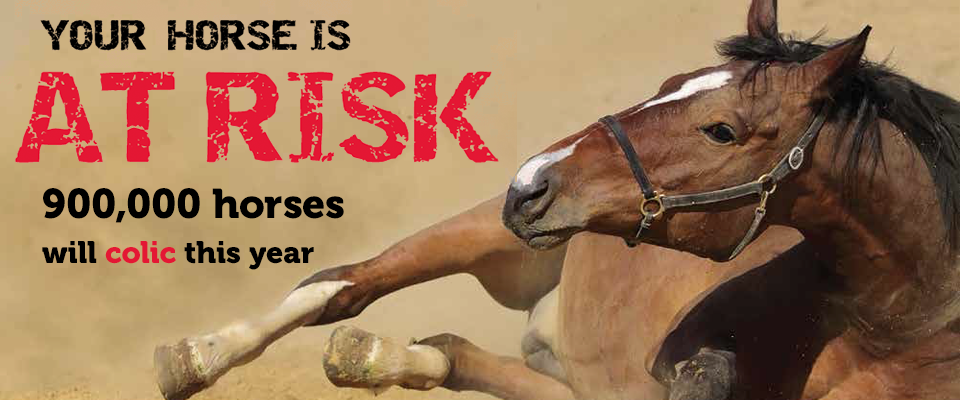
Understanding Colic
Colic is something virtually every horse and horse owner has to go through at some time in their lives. Understanding what “colic” is and what the causes and consequences are will hopefully reduce the times that this occurs with your horse. It has been reported that 920,000 horses will experience an episode of colic this year, and that 64,000 will face life threatening complications due to colic. Another report estimates the incidence of colic at 11% of all horse each year. These are staggering numbers. While we have made great advances in the diagnosis and treatment of colic it is still considered the #1 cause of death in adult horses and the primary reason for emergency visits. “Colic” is simply a term for abdominal pain and can be caused by many sources such as gas distention, colitis/diarrhea, fever, ulcers, abdominal organ pain or even pneumonia/pleuritis. Horses show pain many different ways and being able to recognize it early can be very important. The most common signs are listed below.
- – lying down more than usual
- – getting up and lying down repeatedly
- -standing stretched out
- – standing frequently as if to urinate
- -turning the head towards the flank
- – Repeatedly curling the upper lip
- – pawing the ground
- – kicking at the abdomen
- – rolling
As a horse owner you need to know how to determine your horse’s basic health status, this includes the heart rate, respiratory rate, rectal temperature and the presence or absence of bowel sounds. This information can help us evaluate the progression of the condition and what should be done next. Common causes of colic include excessive gas, impactions and bowel displacements. Weather changes can have an effect on GI motility. Very hot or very cold days can causes horses to eat and drink less as well as move less with slows down motility. This can lead to gas accumulation and abdominal pain. To help alleviate this problem you should add bran and mineral oil to your horses feed whenever there is a significant weather change. We will send email/text reminders to clients on our contact list whenever there is a severe weather advisory. Changes in feed can also contribute to colic. This can be something simple like changing feed companies or supplements or even new bales of hay. Changing grazing areas or access to fresh grass may also be a factor. Having good horse management strategies will reduce the probability of colic on your farm. Constant access to fresh water, abundant turn out on good pasture with limited sand exposure, routine checks for intestinal parasites and regular exams will go a long way towards decreasing the incidence of colic. It cannot be over emphasized that when your horse is painful it is never a good idea to just give them a shot of banamine and go to work or to bed leaving them unobserved. Always, call your Veterinarian, a phone call costs nothing and it’s always good to talk to someone. You should also have someone regularly check on the horse and monitor vital signs should the situation get worse.



